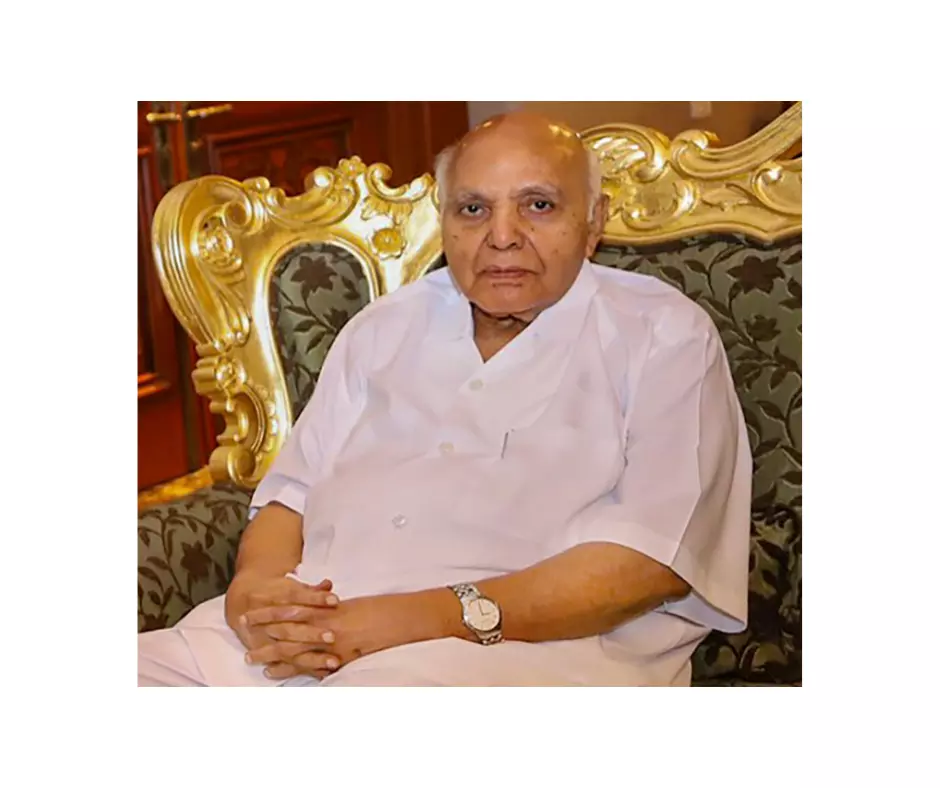Ch Ramoji Rao: A Legend in His Lifetime

Ch Ramoji Rao, a Padma Vibhushan awardee, was one of the rare personalities who became a legend during their own lifetime. Born into a middle-class agricultural family, Ramoji Rao was truly a self-made man. His entrepreneurial journey was marked by a diverse range of business ventures, each contributing to his legacy as an innovative pioneer.
Ramoji Rao's enterprises showcased his multifaceted entrepreneurial spirit. However, he became synonymous with his Telugu newspaper, ‘Eenadu’, which was one of the largest and most influential media conglomerates in India. The newspaper, now celebrating its golden jubilee, revolutionised the media landscape in Telugu-speaking regions.
The success of ‘Eenadu’ paved the way for the establishment of the Eenadu Television Network (ETV), a major player in regional television. Ramoji Rao was likely the first South Indian regional media personality to venture into North India with a string of TV channels, though he eventually lost them.
Known for maintaining strong fundamentals in all his businesses, Ramoji Rao had interests spanning finance (Margadarsi Chit Funds), food (Priya), and hospitality and tourism (Ramoji Group Hotels). His passion for show business, which began with Usha Kiron Movies, led to the creation of the world’s largest film studio on the outskirts of Hyderabad. Ramoji Film City became a major hub for global film production.
Despite his diverse business interests, Ramoji Rao’s true passion always remained in the newspaper and news channels. For nearly five decades, he focused on honing ‘Eenadu’, ensuring it remained an unbeatable leader in its field. His penchant for quality and ensuring it by monitoring daily is a quality that he maintained till the last end.
Though he wielded significant influence in the Telugu states, Ramoji Rao never aspired for political power. He declined an offer from the late N.T. Rama Rao to be nominated to the Rajya Sabha. He believed in using his platform to inform and empower the public rather than seeking political office, solidifying his reputation as a visionary leader.
It’s no secret that Ramoji Rao backed the newly founded Telugu Desam in 1982 and helped catapult N.T. Rama Rao into political prominence through his coverage. The newspaper’s role in 1995, when N. Chandrababu Naidu dethroned his father-in-law, has been a subject of controversy.
Ramoji Rao fought a bitter battle against the Y.S. Jagan Mohan Reddy government recently, turning his paper into a weapon. While he did receive criticism for his activist role, Ramoji Rao firmly stood by his convictions.
His contributions to instilling Telugu language and culture have been immense. He ran several magazines such as ‘Bala Bharatam’ and ‘Telugu Velugu’ to pique the interest of both the young and old in the richness of the native language. Ramoji Rao never publicised his charitable activities, but they were plentiful. The Ramoji Foundation made significant donations during natural calamities and built houses in Gujarat and Odisha. Additionally, aside from the Ramoji Foundation Centre for Eye Infections, the Foundation constructed old age homes, school buildings, and more in the Telugu states.
Ramoji Rao maintained a low personal profile. He never sought meetings with anyone, no matter how powerful. Instead, Union ministers, Chief Ministers, and other politicians would visit him in his office. He preferred to let his work speak for itself. This approach highlighted his commitment to his principles and reinforced his stature as a media titan who commanded respect without seeking it.
Ramoji Rao’s demise marks the end of an era in contemporary Telugu history. His legacy will be cherished for a long time, and his leadership will continue to inspire future generations.